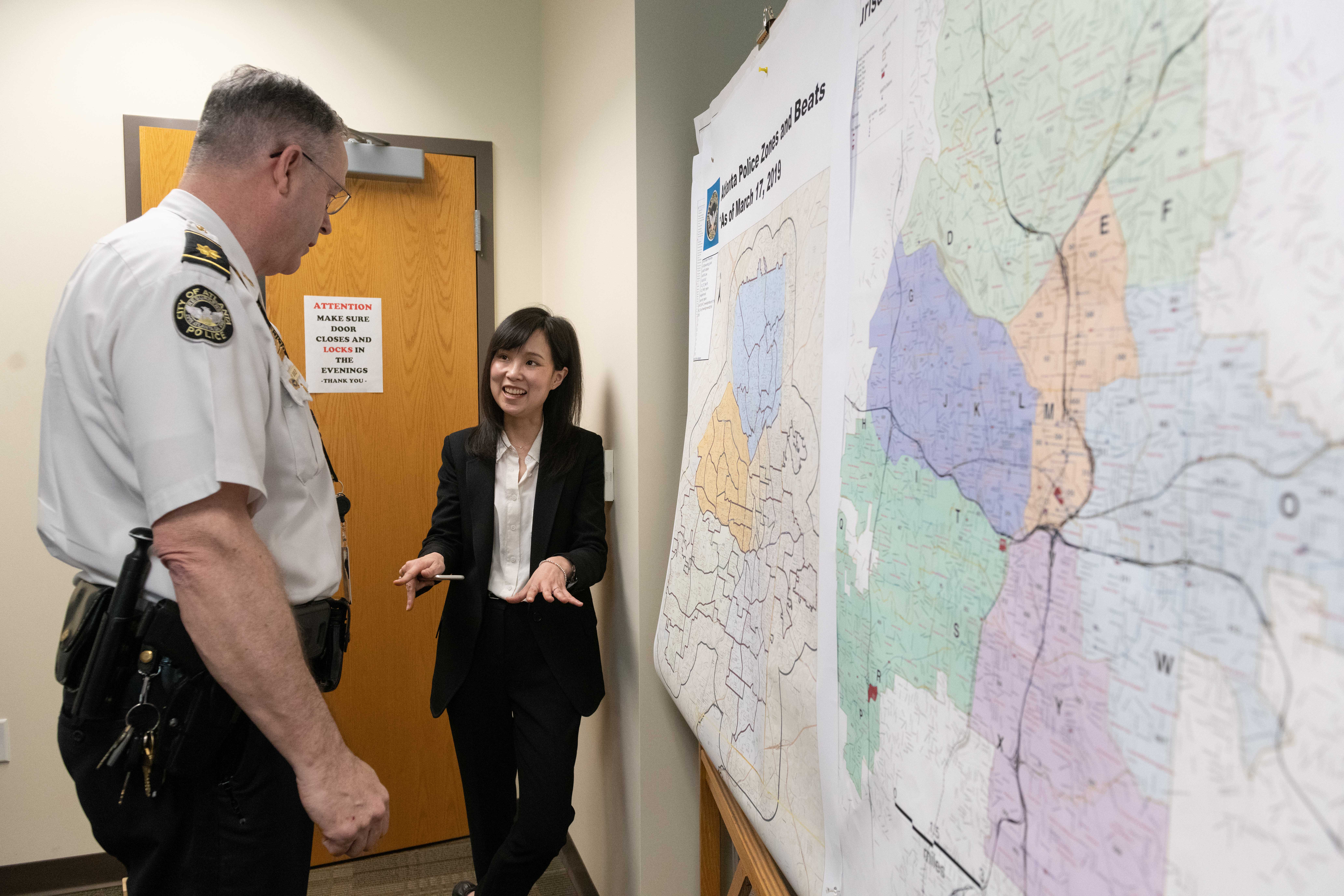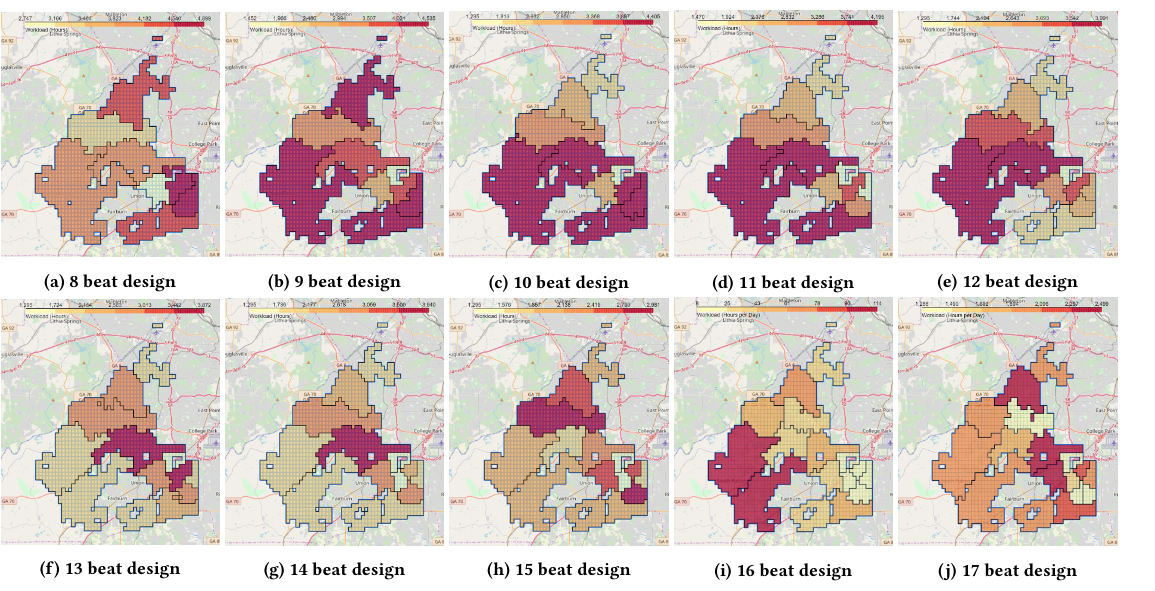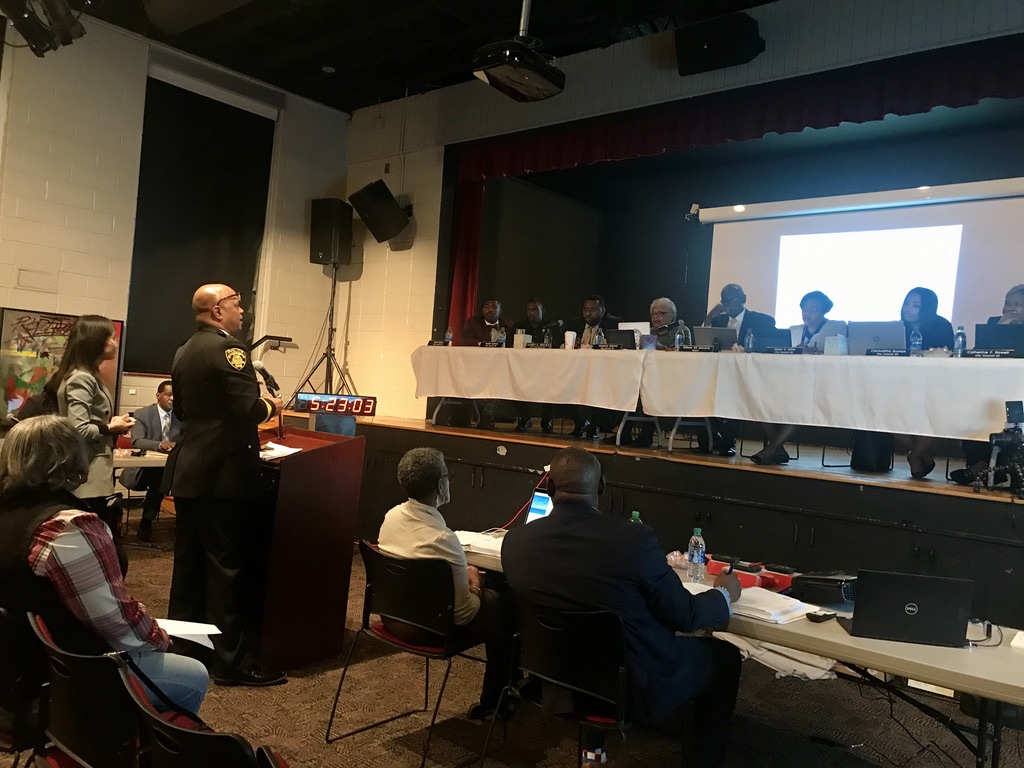Data-Driven Policing
I worked with students and collaborabors on data-driven policing, balance police workload and efficiency. The projects are in collaboration with the City of Atlanta and the City of South Fulton. Our project with City of South Fulton helps the black community with their police operation. See Georgia Tech reports:
College of Engineering: Better AI, Better Police Force
Georgia Tech Smart Cities and Inclusive Innovation: Data-driven policing
City of Atlanta
Crime linkage detection
We develop algorithms that find connections between crime incidents. The algorithm examines both structured data captured by 911 operators — the type of crime, and when and where it happened — and unstructured, or free text data. This type of data is gathered by police officers at the scene of the crime and includes detailed narrative descriptions from the officer, victims, and witnesses. Our algorithm automates this process by dissecting incident reports and learning the similarities between words and common patterns in how crimes occurred. The algorithm has been adopted in the Atlanta Police Department's AWARE System.
Data driven police zone design
We use data to redesign the the City of Atlanta’s police zones and beats, determining where to allocate officers across the city. The data are large-scale and multi-modal data, including the millions of 911 police reports, traffic sensor counts, and US census data. We develop spatio-temporal model to predict future workload, in which the optimal design is based on and solved by a mixed-integer program. On March 17, 2019. Atlanta Police Department implemented our zone redistrciting design.
  Xie and Major Quigley from APD. |
News Report
AJC: Atlanta police hope changes to patrol zones shorten response times
Atlanta Police Department adds beats to Zone 6
Atlanta Police make changes to four zone boundaries as part of beat redesign

|
Xie with Captain Gwinn receiving the Smart 50 Award at the Smart City Expo 2018. |
City of South Fulton
We redesign the police patrol beat in South Fulton, Georgia, using a predictive data-driven optimization approach. Due to rapid urban development and population growth, the original police beat design done in the 1970s was far from efficient, which leads to low policing efficiency and long 911 call response time. We balance the police workload among different regions in the city, improve operational efficiency, and reduce 911 call response time by redesigning beat boundaries for the SFPD. In early 2020, City of South Fulton implemented our design. See City of South Fulton annual report.

|
Algorithm generated optimal design for City of South Fulton, different number of beats. |

|
Working with City of South Fulton police officers. |

|
Chief of the City of South Fulton and Xie presented in front of the city council before voting to approve the new police beat design, Jan. 2020. |
News Report
Fox 5: Community policing: City of South Fulton gets help from Georgia Tech to shape beats
City of South Fulton: Georgia Tech police beat design will help cut response times
Saporta Report: Community policing: City of South Fulton gets help from Georgia Tech to shape beats
South Fulton police adds cruisers as new beat design puts more officers on the street
Awards
INFORMS Wagner Prize, Finalist, 2021.
INFORMS "Doing Good with Good OR" Paper Competition, 2nd Place, 2019.
Smart 50 Award at the Smart Cities Connect Conference and Expo, 2018.
|
|
Shixiang Woody Zhu received award at the INOFMRS "Doing Good with Good OR" Paper Competition, 2019. |
Publications
-
Crime linkage detection by spatial-temporal-textual point processes.
S. Zhu, and Y. Xie. Accepted. Annals of Applied Statistics. -
Data-Driven Optimization for Police Zone Design.
S. Zhu, H. Wang, and Y. Xie. Accepted. Informs Journal on Applied Analytics. (Finalist, Wagner Prize 2021.) -
Data-Driven Optimization for Police Beat Design in South Fulton, Georgia.
S. Zhu, A. W. Bukharin, L. Lu, H. Wang, Y. Xie. KDD Workshop on Data Science for Social Good. -
Crime event embedding with unsupervised feature selection.
S. Zhu and Y. Xie. ICASSP 2019. - Crime incidents embedding using restricted Boltzmann machines.
S. Zhu and Y. Xie. ICASSP 2018.